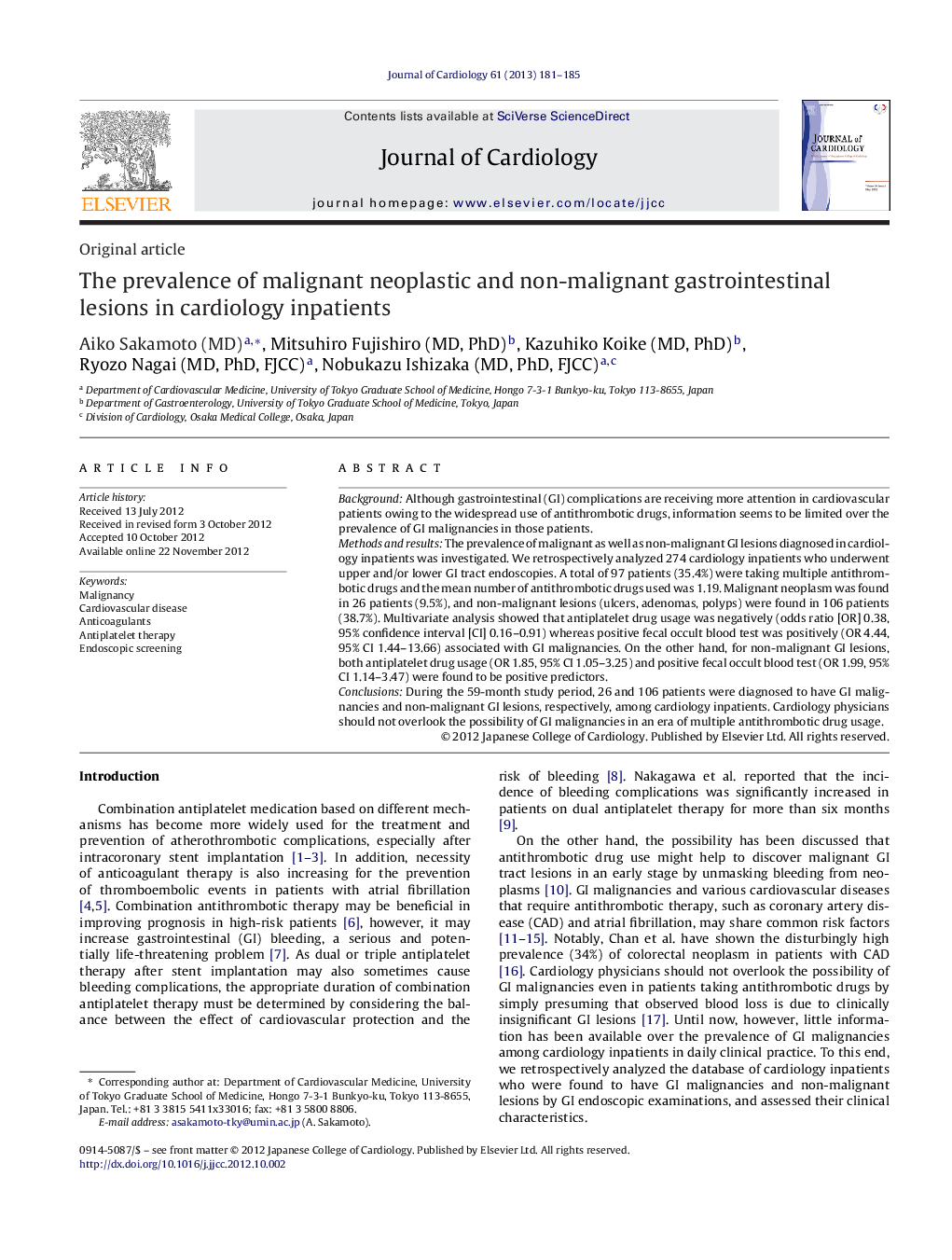| Article ID | Journal | Published Year | Pages | File Type |
|---|---|---|---|---|
| 5984235 | Journal of Cardiology | 2013 | 5 Pages |
BackgroundAlthough gastrointestinal (GI) complications are receiving more attention in cardiovascular patients owing to the widespread use of antithrombotic drugs, information seems to be limited over the prevalence of GI malignancies in those patients.Methods and resultsThe prevalence of malignant as well as non-malignant GI lesions diagnosed in cardiology inpatients was investigated. We retrospectively analyzed 274 cardiology inpatients who underwent upper and/or lower GI tract endoscopies. A total of 97 patients (35.4%) were taking multiple antithrombotic drugs and the mean number of antithrombotic drugs used was 1.19. Malignant neoplasm was found in 26 patients (9.5%), and non-malignant lesions (ulcers, adenomas, polyps) were found in 106 patients (38.7%). Multivariate analysis showed that antiplatelet drug usage was negatively (odds ratio [OR] 0.38, 95% confidence interval [CI] 0.16-0.91) whereas positive fecal occult blood test was positively (OR 4.44, 95% CI 1.44-13.66) associated with GI malignancies. On the other hand, for non-malignant GI lesions, both antiplatelet drug usage (OR 1.85, 95% CI 1.05-3.25) and positive fecal occult blood test (OR 1.99, 95% CI 1.14-3.47) were found to be positive predictors.ConclusionsDuring the 59-month study period, 26 and 106 patients were diagnosed to have GI malignancies and non-malignant GI lesions, respectively, among cardiology inpatients. Cardiology physicians should not overlook the possibility of GI malignancies in an era of multiple antithrombotic drug usage.
